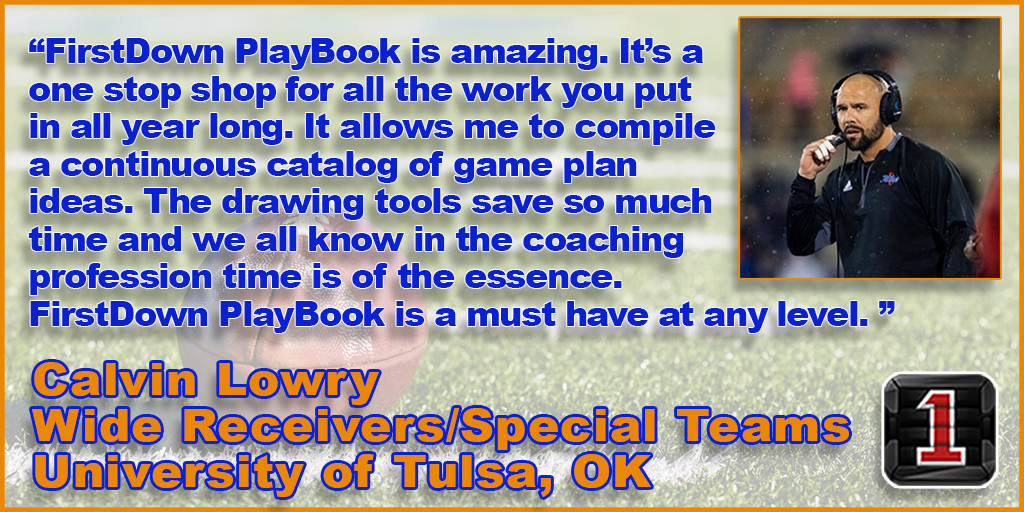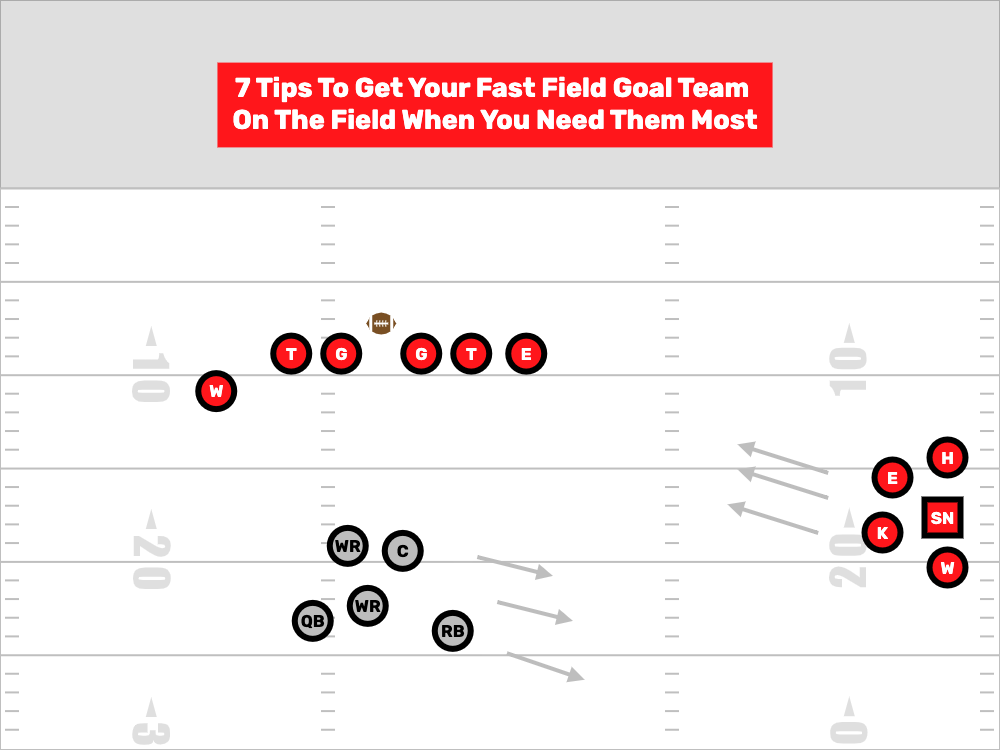7 Tips For Fast Field Goal Success
It’s the time of year to be doing inventory and quality control on your special teams. It’s a great time of the year to slow down and really evaluate the little things for all six phases. Little things can win you a ball game. We all understand that. It’s just hard to know what, when and how much to work on all of the things that go into winning a football game. That’s why this time of the year allows you to look at plays like fast field goal with clear judgement.
Related: How Many Special Teams Phases Should Your Starters Be On?
Aa fast field goal situation is when you have no timeouts remaining and are trying to steal three quick points before the half or to actually win the football game at the end of regulation. The things that go into making this happen are so common sensical. However, time and time again you see the opportunity wasted and a game is unnecessarily lost.
As we sit here in February let’s look at seven tips to help prevent this from happening to you and your football team next fall.
Practice It.
This sounds simple but here is what we mean. The pace that you practice your PAT/Field Goal unit should often reflect the most difficult situation that unit could be faced with. A fast field goal situation is just that. So even when you’re not practicing fast field goal make your field goal unit perform with up tempo every now and then. Allowing your PAT/FG unit to just sit there and bang through six kicks in five minutes at practice is not game realistic. Make then come off of the sideline in a hurried situation during practice.
“May Day”
So what is “May Day”? Well, it can be “May Day” or whatever you want to call it. What is important is that it’s a word that means we are executing a fast field goal now! It communicates this to everyone on the sideline and everyone on the field. Every player, every coach, manager and trainer knows what it means. Stop what you are doing and do your job to execute a fast field goal. If you are in an offensive team period and the head coach yells “May Day” everyone should spring into action.
Hurry Don’t Rush
There is a fine line between doing things with a sense of urgency and rushing around chaotically. This is one of those game situations where if you’re not careful your team will be their own worst enemy. Keep these things in mind as your team begins a “May Day” drill and coach them to hurry but not to rush. That means get to where you need to be in a controlled manner to get your job done.
Get Out Of The Way!
If you are not part of the fast field goal then get out of the way. This situation occurs at a critical time in the game. There are a lot of people on the sideline that have no role in this play. They will want to get close enough to see it. The spectators on the sideline must get back and away from the action. The fact that an NFL player actually ran onto the field in the middle of a Super Bowl this past Sunday should be proof positive about this.
Have A Visual Signal
Have a visual “May Day” signal. Once again this is going to happen at a critical time in the game and it might be noisy. You could also have players on the far side of the field that cannot hear the may day call. Have some visual signal like waiving a towel above your head that signals to the players on the field and everyone else that you are in a “May Day” drill. The more ways you can communicate this situation, the better.
Related: Long Snapping Fundamentals Detailed
Offense Must Yield When Leaving The Field
The Field Goal team has a difficult job to do in this situation. Getting to the ball to get lined up should not be one of them. Coach your offensive players to go around your Field Goal team as they leave the field. You don’t want two ships colliding in the night as your offense leaves the field and your field goal team takes it. The last thing you want is your kicker getting flattened by your center as he tries to get off of the field in a hurry.
Protect and Cover The Kick
This is true for all Field Goal attempts but on a kick before the half or a kick in a tied up game at the end of regulation this is critical. Remember Alabama vs Auburn in the Iron Bowl several years ago? Often times these last second kicks are longer. This can make them lower as they come off of the kicker’s foot. Your opponent is going to either pin their ears back and try to block this kick or put a returner deep and attempt a last second return. If they put a returner deep you need to cover down after the kick.


